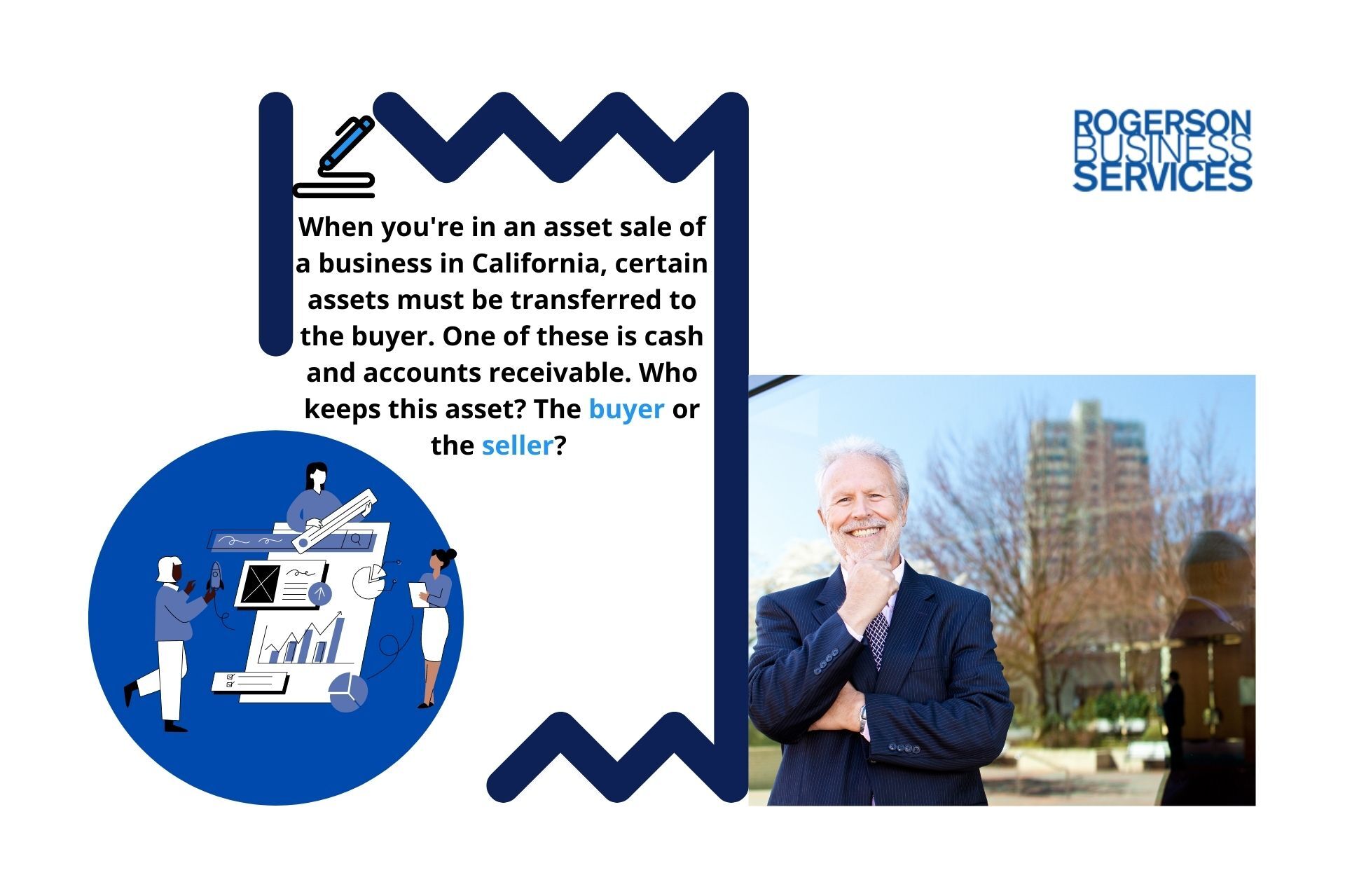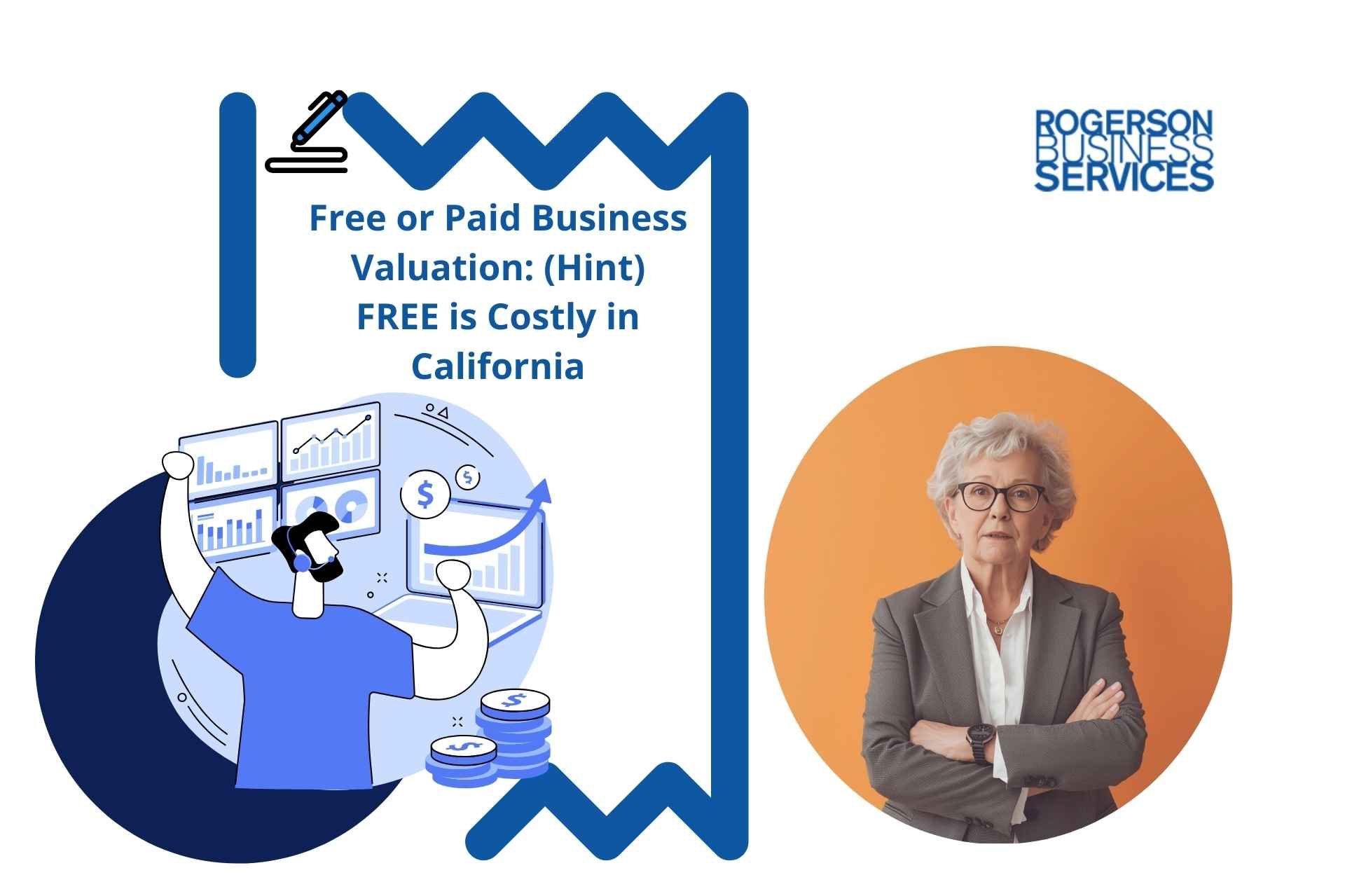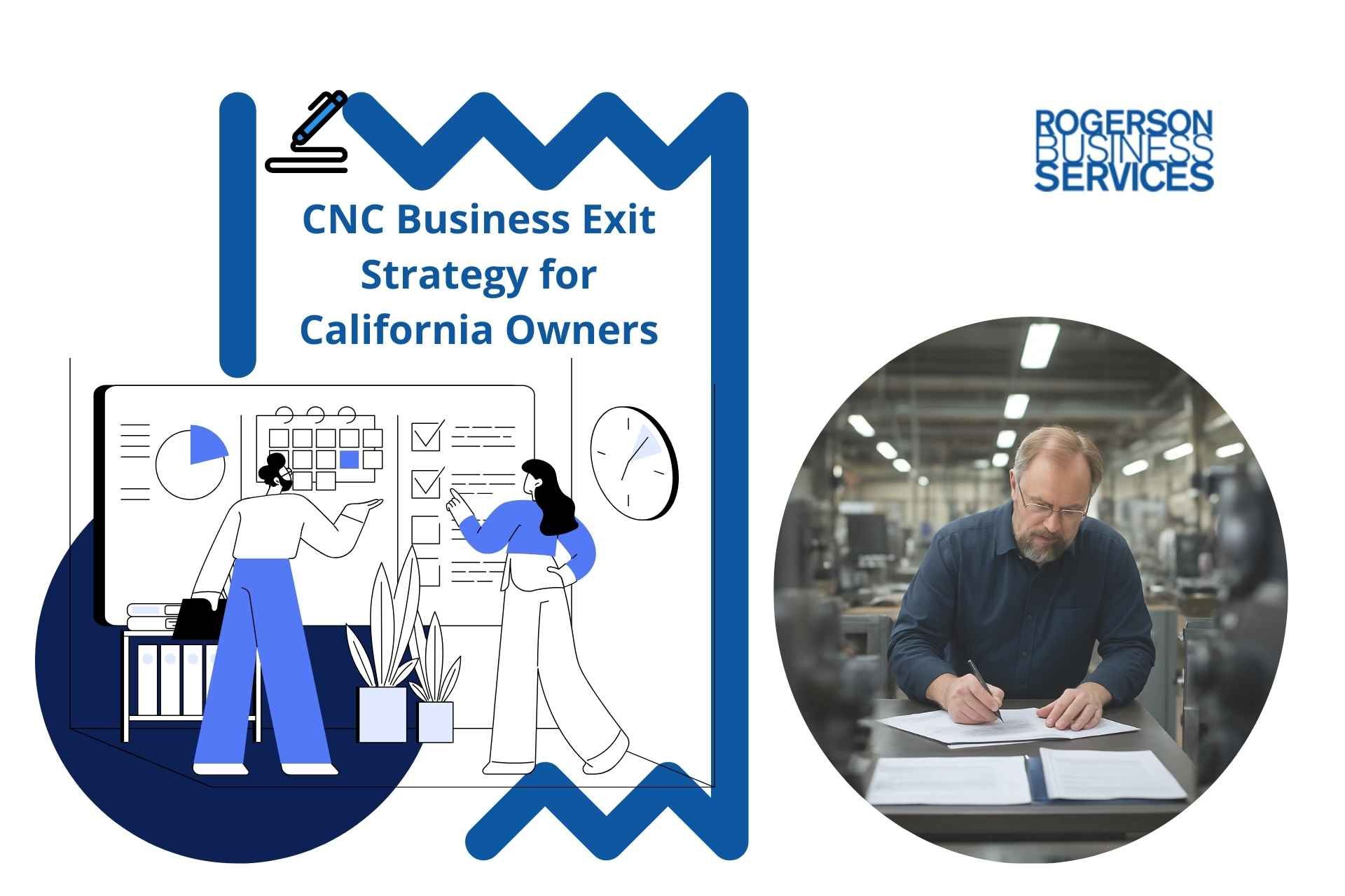Asset Sale Of Business | Who Gets The Cash In The Bank, Buyer or Seller?
Asset Sale of Business
When you purchase a business asset in California, the cash in the bank is owned by the seller of the business. The buyer can only take possession of that money if there's an agreement between both parties determining otherwise!

When you're in an asset sale of a business in California, certain assets must be transferred to the buyer. One of these is cash and accounts receivable. Who keeps this asset? The buyer or the seller?
This blog post will explore this question and provide some guidance on who should maintain control of this asset during a sale.
What Happens to Cash in the Bank When You Sell a Business?
The money is not a company's assets in most cases, and the seller is allowed to keep the money in the bank. The only time the money would be considered an asset is if the owner put money in a particular bank account to sell the business.
Accounts receivable are also not generally considered assets of the business. Accounts receivable are assets because they are debts that the customer must pay. The seller may choose to keep these on their books or transfer them to the buyer. Most buyers will want to take over the responsibility of collecting on these accounts receivable.
Extracting Cash from Company Before Sale
There may be times when the seller needs to extract cash from the business before it is sold. You can do this by issuing a dividend or selling some of the company's assets.
Sale of Account Receivable
Another way to extract cash from the business is a sale of accounts receivable. The buyer will then be responsible for collecting on these accounts.
When you Sell a Company Who Gets the Money?
The proceeds from the sale of a business in California are used to pay off the company's liabilities, with any remaining amount paid to the owners or shareholders of the company.
What Happens to Accounts Payable When a Business is Sold?
Accounts payable are company liabilities and must be paid off as part of the asset sale.
What is Included in the Sale of a Business?
When selling a business, certain assets must be transferred to the buyer. These include:
- Cash
- Accounts Receivable
- Inventory
- Equipment
- Property and Leasehold Interests
How to Transfer Business Bank Account to New Owner
The buyer and the seller should work together to transfer the bank account to the new owner. The easiest way to do this is for the seller to provide the buyer with all of the necessary information, including:
- The name of the bank
- The account number
- The routing number
- Any other relevant information
Once the buyer has this information, they can contact the bank and provide them with the information required to transfer the account to the new owner.
Selling Limited Lower Middle Market Company with Bank Account
If you are selling a limited lower middle market company in California with a bank account, the buyer will need to contact the bank and provide them with the necessary information to transfer the account to the new owner. The information includes the name of the bank, the account number, and the routing number.
The buyer should also ask for a statement from the bank that shows all transactions that have taken place on the account since it was opened.
The buyer and the seller should work together to ensure a smooth transition of the bank account to the new owner.
What is an Asset Sale of Business?
An asset sale of a business is the sale of all or substantially all of the assets of a business. This type of sale can include both tangible and intangible assets. The proceeds from the sale are used to pay off the company's liabilities, with any remaining amount paid to the owners or shareholders of the company.
Is Cash Included in Asset Sale?
No, cash is not included as an asset in the sale of a lower middle market business in California. The seller remains with the cash 99% of the time. This includes money in the bank, bonds, petty cash, and more.
Asset Sale vs. Stock Sale
There are two main options when selling a business: stock sale or asset sale. An asset sale entails the buyer purchasing the company's assets, including cash, accounts receivable, inventory, equipment, property, and leasehold interests.
On the other hand, the buyer buys the company's shares of stock in a stock sale. This means that the buyer will become the owner of the company.
Sales of Assets Advantages and Disadvantages
When selling a business in the lower middle market segment, certain assets can be sold. This includes cash, accounts receivable, inventory, equipment, property, and leasehold interests.
The advantage of selling assets is that the seller can get some immediate cash to help them pay off any company liabilities. The disadvantage is that the buyer may not want all of the assets or may not be able to use them.
Which is Better: Asset Sale or Stock Sale?
There is no one-size-fits-all answer to this question. It depends on the needs of the seller and the buyer. For example, an asset sale may be a better option if the seller wants to get some immediate cash to pay off their liabilities.
On the other hand, a stock sale may be a better option if the buyer intends to become the company's owner.
Asset Sale Example
In an asset sale, the buyer purchases the assets of the company. Assets include cash, accounts receivable, inventory, equipment, property, and leasehold interests.
Let's say that a business is selling its assets for $100,000. The buyer will need to pay off any company liabilities first, which may include the debt owed to the bank, accounts payable, and any other liabilities. This leaves $50,000 for the seller.
The seller can use this money to pay off any personal debts they may have or distribute it to the company's shareholders.
Selling a Business in 2022
If you are a lower middle market business owner in California and thinking of selling your business in 2022, you should keep a few things in mind. First, you will need to transfer the company's assets to the buyer. This includes cash, accounts receivable, inventory, equipment, property, and leasehold interests.
You will also need to pay off any company liabilities, including the debt owed to the bank, accounts payable, and any other penalties.
The buyer and the seller should work together to ensure a smooth transition to the new owner.
When selling a business, there are certain things that you need to take into account.
These include transferring the company's assets to the buyer, paying off any liabilities of the company, and ensuring a smooth transition of the business to the new owner. Keep these things in mind when selling your business in 2022!
Conclusion
When selling a lower middle market business in California, there are certain things that you need to take into account. These include transferring the company's assets to the buyer, paying off any liabilities of the company, and ensuring a smooth transition of the business to the new owner.
What’s more, getting a mergers and acquisitions advisor on your side will help significantly in understanding the ins and outs of successfully valuing and selling your business at the highest valuation.
If you have decided to value and then sell your lower middle market business now or within the next six to twelve months in California, click here to get started with this quick and simple form, or call Andrew Rogerson, Certified M&A Advisor, so we can understand your pain points better and prioritize your inquiry with Rogerson Business Services, RBS Advisors.
This is part of business owner tips to answer how Rogerson Business Services attract qualified buyers to sell your business series ->
If you found this information helpful, we ask you kindly to share it on your social media feeds. Thank you for spreading the good word :)
Hey there! Can we send you a gift?
We just wanted to say hi and thanks for stopping by our little corner of the web. :) we'd love to offer you a cup of coffee/tea, but, alas, this is the Internet.
However, we think you'll love our email newsletter about building value and properly position your company before transition/exit your business ownership.
As a special welcome gift for subscribing, you'll also get our helping and educational guides, tips, tutorials, etc.. for free.
It's filled with the best practices for retiring serial business owners like Dan Gilbert, Larry Ellison, Warren Buffett, and many more.
Just sign up for our emails below.


